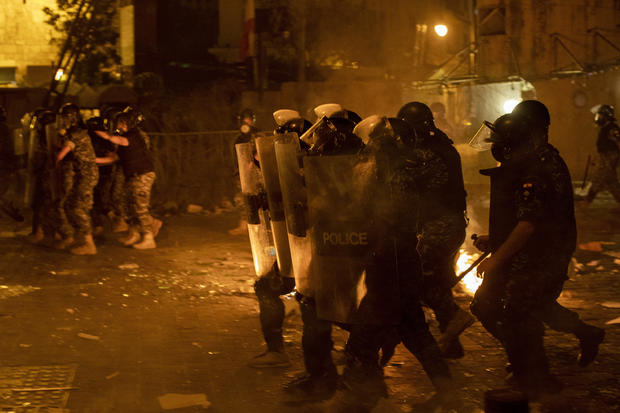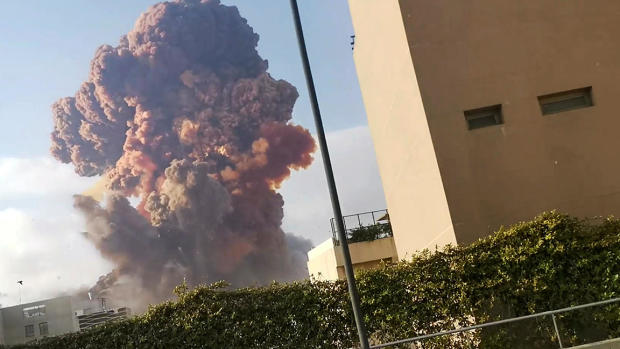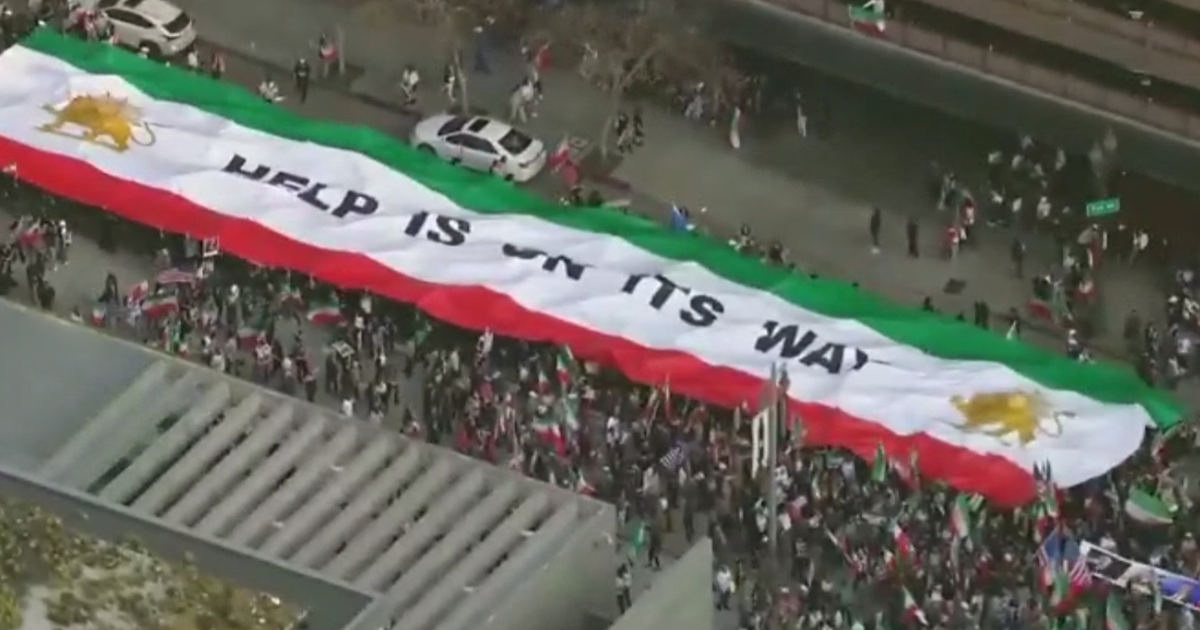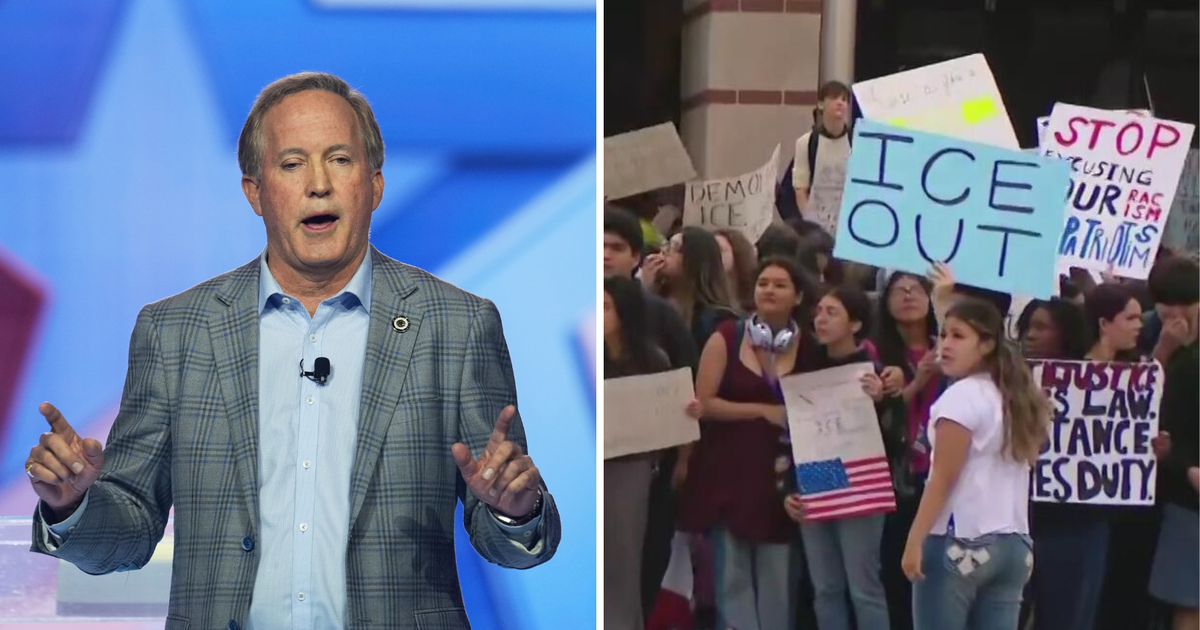Anti-government protests break out in Beirut after deadly blasts: "Resign, you criminal!"
Anti-government protests erupted near Beirut's parliament overnight Thursday, with dozens of people setting fires and throwing stones after Tuesday's devastating port explosion that leveled much of the city. Police fired tear gas at demonstrators, who were calling for the resignation of Lebanon's political elite.
While investigators focus on port officials, many Lebanese put the blame for the blasts that killed at least 150 people and wounded thousands squarely on the political elite and the corruption and mismanagement that, even before the disaster, had pushed Lebanon to the brink of economic collapse.
Earlier Thursday, French President Emmanuel Macron visited the city, promising aid, but warning that he would not give "blank checks to a system that no longer has the trust of its people."
In a striking scene, Macron — whose country was once Lebanon's colonial ruler — called on citizens to create a "new political order."
"New political order"
As Macron walked through one of the worst-hit neighborhoods, Gemmayzeh, a crowd gathered around him, shouting their anger and chanting, "Revolution!" and "The people want to bring down the regime!" — slogans used at mass protests last year.
The French leader told them he would propose, "a new political pact" when he met the Lebanese government later, then added, "I will be back on the first of September and if they can't do it, I will keep my responsibility toward you." He also promised that French aid would be given out with transparency and "will not go into the hands of corruption."
One woman shouted at Macron, "You are sitting with warlords. They have been manipulating us for the past year." He replied, "I'm not here to help them. I'm here to help you." They then hugged.
Notably, none of Lebanon's top politicians have toured residential areas damaged by the blast, though President Michel Aoun and others did visit the port. Hours after Macron left Gemmayzeh, Justice Minister Marie-Claude Najm tried to visit, only to be driven out by protesters.
"Resign, you criminal! Would you accept anything less if your sister were among those killed?" one protester shouted at her. As she was about to respond, another sprayed her with a water hose. She left as protesters chanted, "Revolution!" and "Resign."
After talks with Lebanese leaders, Macron announced that France will organize a conference in the next few days with European, American, Middle Eastern and other donors to raise money for food, medicine, housing and other urgent aid, but promised a "clear and transparent governance" so that the aid goes directly to the population and aid groups.
Struggling to survive
Tuesday's devastating explosions occurred at a time when Lebanese people's savings have melted away, and unemployment and poverty have mounted in a financial crisis. Few have the capacity to rebuild homes and businesses, and the government is scraping for dollars.
Beirut's hospitals remained overwhelmed by the wounded, and there were fears of a spike in coronavirus cases.
On Friday, the United States pledged over $17 million in disaster aid, adding that "announcements of additional aid and assistance are forthcoming." European, Arab and Asian countries were also sending doctors, medical supplies or field hospitals. The United Nations said Thursday it was releasing $9 million from its emergency fund for Lebanon to strengthen hospitals and intensive care units.
The international community has been reluctant in past years, however, to offer support to the notoriously dysfunctional Lebanese government. The same factions — and in most cases the same figures — have ruled Lebanon since the 1975-1990 civil war, including Iranian-backed Hezbollah. Almost all public institutions are divided up among the factions, which use them as patronage generators for themselves and their supporters. That means they tend to turn a blind eye to corruption, petty or major, and little actual development is put into the institutions. Even basic services like electricity and trash collection are a shambles.
For more than a decade, officials, watchdog groups and Lebanon's media have reported on widespread corruption at the Port of Beirut, including bribery and hiding of merchandise from custom duties or taxes.
Investigators on Friday were scheduled to interview the port's general manager, Hassan Koraytem, as well as Ghazi Aridi, who was public works and transport minister in 2013, when a Russian-owned, Moldovan-flagged cargo ship, the MV Rhosus — which was carrying 2750 tons of ammonium nitrate — arrived in Beirut.





